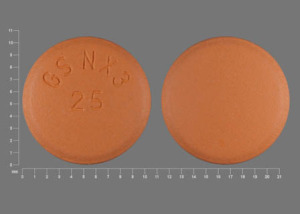Promacta Interactions
There are 185 drugs known to interact with Promacta (eltrombopag), along with 4 disease interactions, and 2 alcohol/food interactions. Of the total drug interactions, 22 are major, 160 are moderate, and 3 are minor.
- View all 185 medications that may interact with Promacta
- View Promacta alcohol/food interactions (2)
- View Promacta disease interactions (4)
Most frequently checked interactions
View interaction reports for Promacta (eltrombopag) and the medicines listed below.
- acyclovir
- amlodipine
- atorvastatin
- biotin
- carvedilol
- Eliquis (apixaban)
- ferrous sulfate
- folic acid
- furosemide
- gabapentin
- levofloxacin
- levothyroxine
- lisinopril
- losartan
- melatonin
- metformin
- metoprolol
- Metoprolol Succinate ER (metoprolol)
- omeprazole
- ondansetron
- pantoprazole
- potassium chloride
- prednisone
- simvastatin
- spironolactone
- tamsulosin
- trazodone
- Tylenol (acetaminophen)
- Vitamin C (ascorbic acid)
- Vitamin D3 (cholecalciferol)
Promacta alcohol/food interactions
There are 2 alcohol/food interactions with Promacta (eltrombopag).
Promacta disease interactions
There are 4 disease interactions with Promacta (eltrombopag) which include:
- hepatitis C
- hepatotoxicity / hepatic dysfunction
- cataracts
- thrombotic / thromboembolic complications
More about Promacta (eltrombopag)
- Promacta consumer information
- Compare alternatives
- Pricing & coupons
- Reviews (18)
- Drug images
- Side effects
- Dosage information
- Patient tips
- During pregnancy
- Generic availability
- FDA approval history
- Drug class: platelet-stimulating agents
- Breastfeeding
- En español
Related treatment guides
Drug Interaction Classification
| Highly clinically significant. Avoid combinations; the risk of the interaction outweighs the benefit. | |
| Moderately clinically significant. Usually avoid combinations; use it only under special circumstances. | |
| Minimally clinically significant. Minimize risk; assess risk and consider an alternative drug, take steps to circumvent the interaction risk and/or institute a monitoring plan. | |
| No interaction information available. |
See also:
Further information
Always consult your healthcare provider to ensure the information displayed on this page applies to your personal circumstances.


